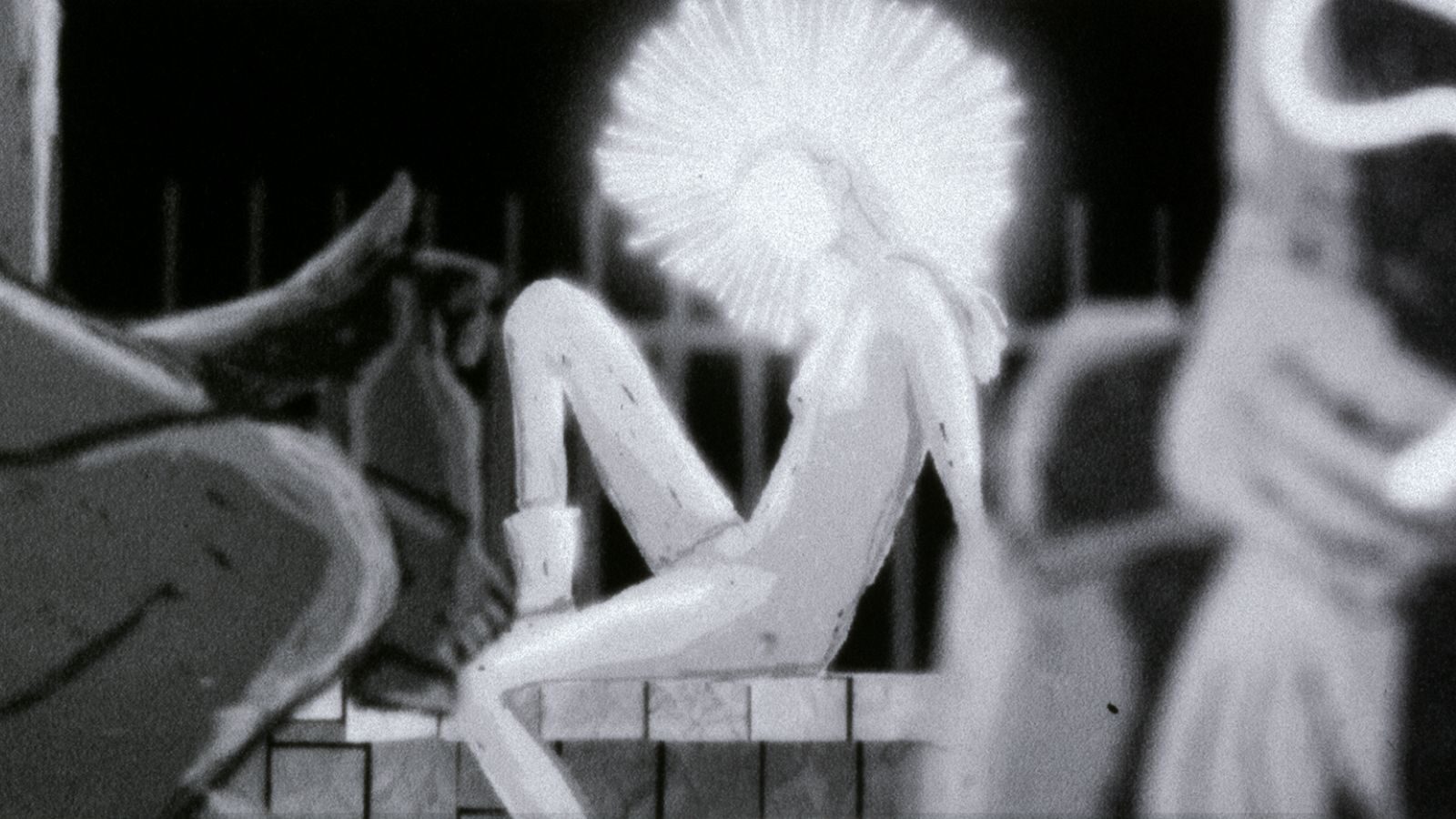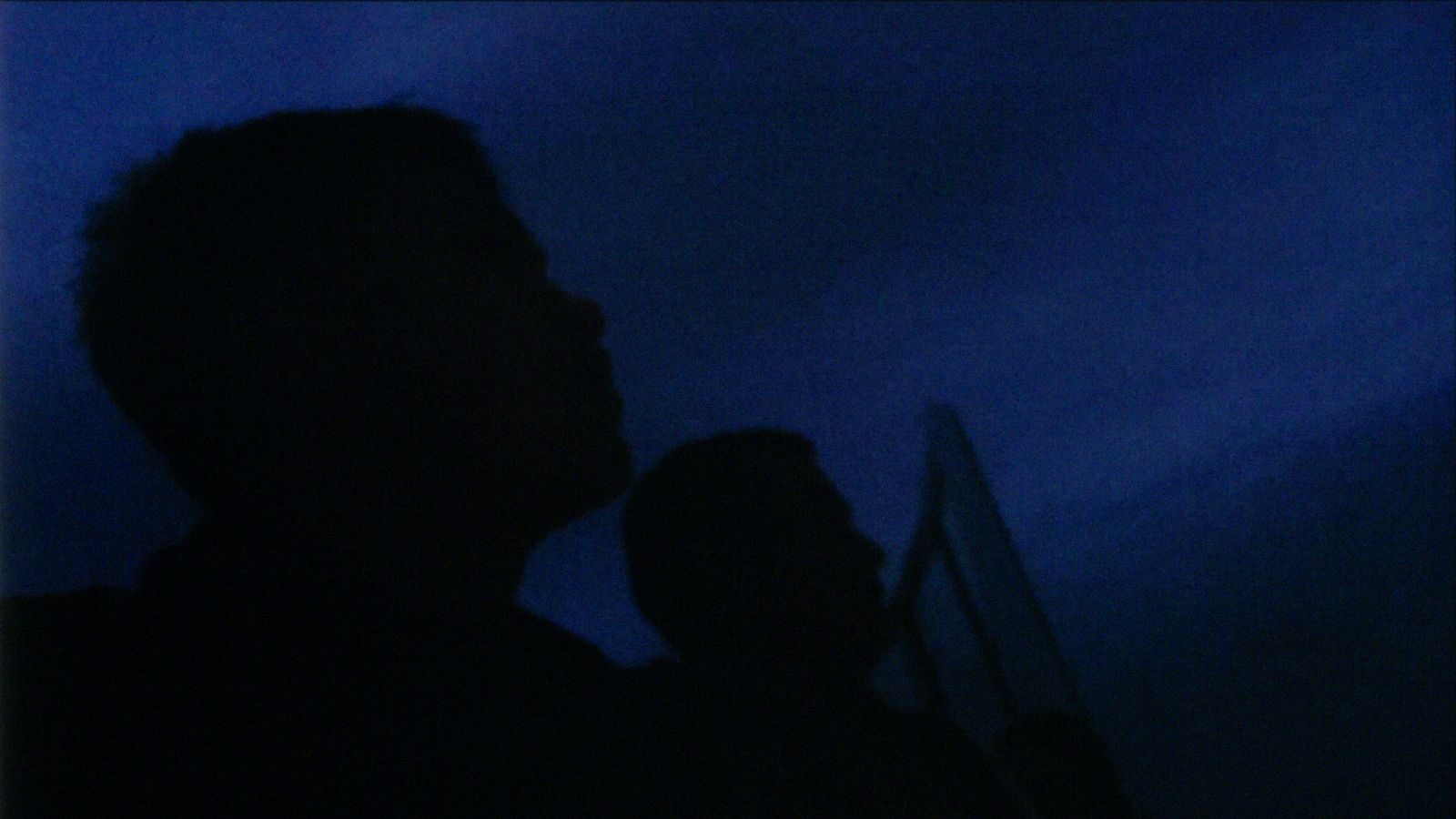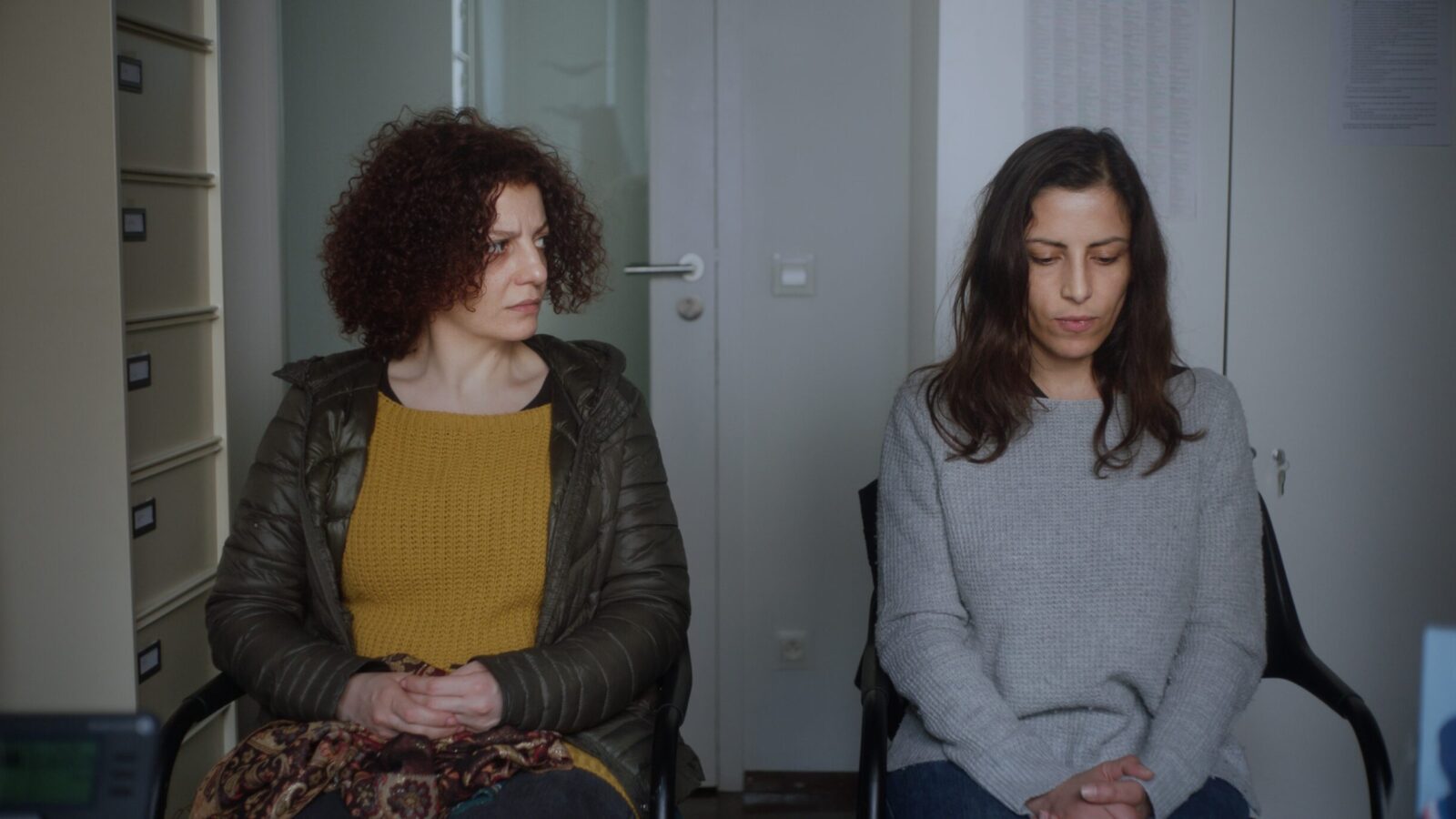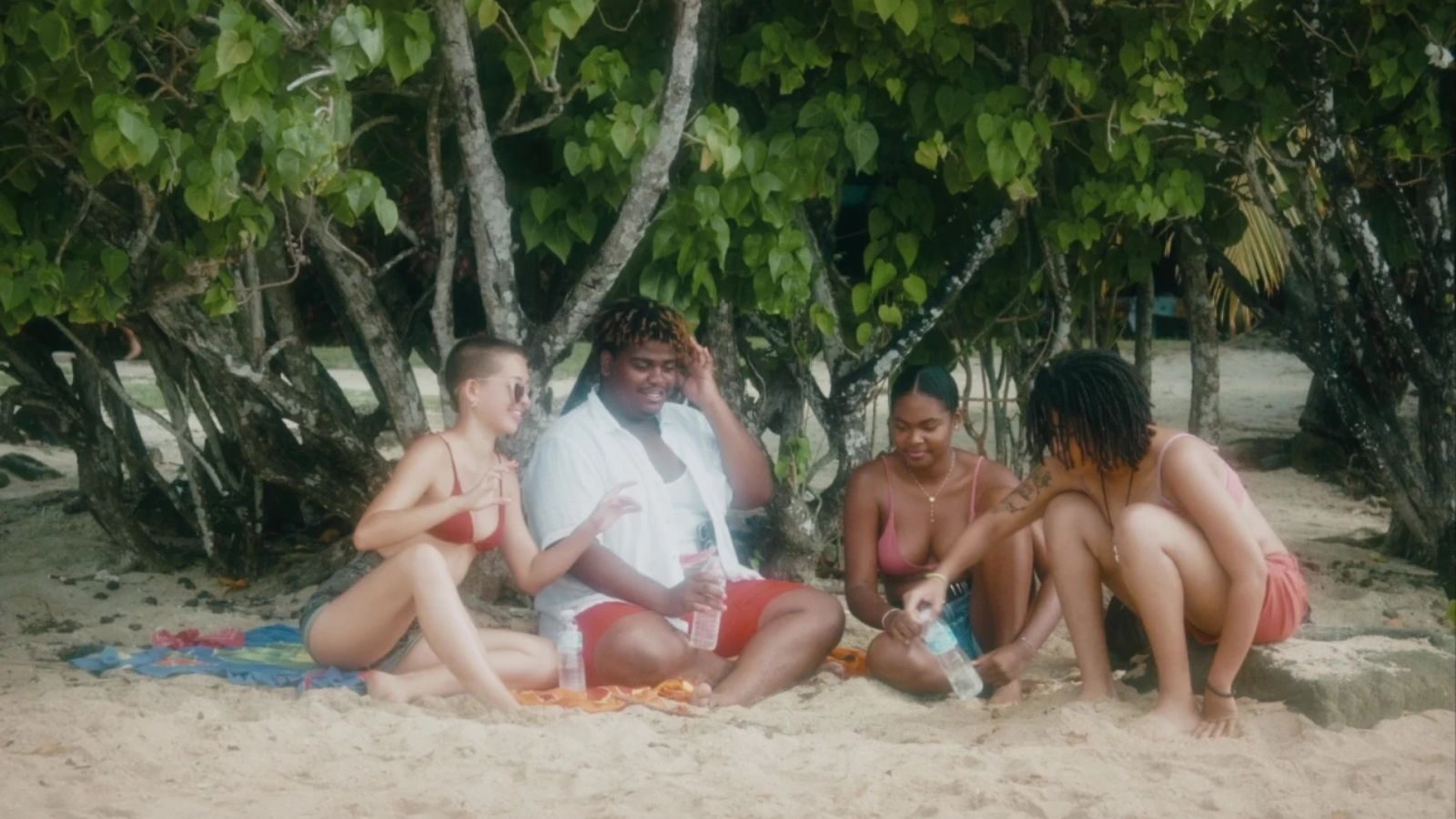Exploring bold new works from filmmakers around the world, the 53rd New Directors/New Films, our annual festival co-presented with The Museum of Modern Art, officially kicks off on April 3. Ahead of the festival, get to know the filmmakers who speak to the present and anticipate the future of cinema.
Several of the directors featured in this year’s Shorts Program I share a few words below about their backgrounds, their filmmaking inspirations, challenges, and more. Shorts Program I screens on April 6 and April 7.
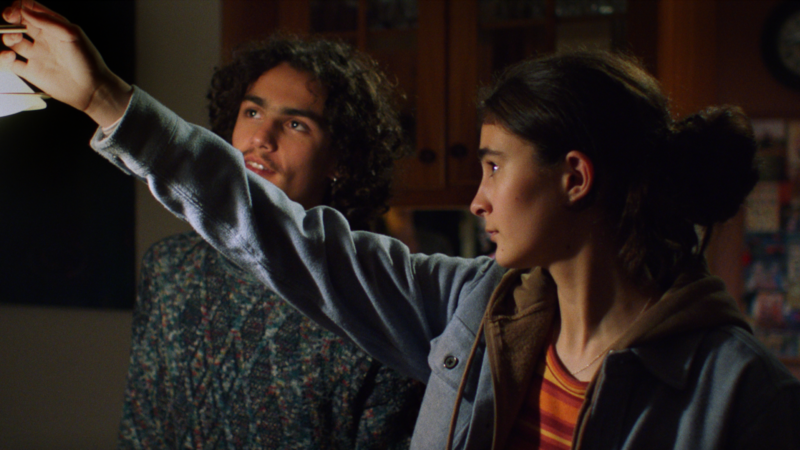
Shimmering Bodies
Inês Teixeira on Shimmering Bodies
FLC: What made you first want to be a director?
From a very young age, I’ve enjoyed writing stories, and I believe it was through this interest in writing that I gradually became drawn to cinema. After completing my studies at the Lisbon Film School in editing, I started to work, first as an assistant editor and later as a script supervisor. It wasn’t until nearly a decade later that the idea of creating my own film emerged. That’s when I began working on the project that eventually became my first short film: Corpos Cintilantes (Shimmering Bodies).
Was there a film or director you were inspired by or continue to be inspired by?
In terms of inspiration, as I delved into the writing process of Corpos Cintilantes, my focus gravitated towards films directed by women and featuring female leads. I find particular inspiration in filmmakers who skillfully utilize cinematic tools to narrate stories, convey sensations, and depict environments beyond the confines of traditional narrative structures. Noteworthy directors who embody this approach include Kelly Reichardt, Céline Sciamma, Eliza Hittman, Alice Rohrwacher, Jacqueline Lentzou, Andrea Arnold, and Lynne Ramsay. Through their works, these filmmakers extend an invitation to the audience, encouraging us to immerse ourselves in a state of mind, a moment, a question, a place, or a character.
In your own words, tell us about your film. What should audiences know?
Corpos Cintilantes explores a moment in the life of Mariana, a 16-year-old girl who, after being invited to spend a weekend in Leiria, begins to see her friend Jorge in a different light. As she gradually awakens to her own desires, Mariana becomes a subject of desire herself.
This story is inspired by a memory from my own adolescence, when a friend invited me to spend a weekend at his house. I remember the unexpected invitation and the uneasiness of sleeping at a boy’s house with whom I didn’t have a particularly intimate relationship. Naturally, the surprise invitation raised expectations that kept me excited throughout the weekend. However, as the hours passed, neither of us dared to express our true feelings, and nothing happened. At the time, I was convinced that it had all been in my head. Years later, when I recalled this weekend, I wondered if the invitation itself wasn’t already a demonstration of his interest, and whether my own inhibitions may have prevented its consummation.
In Corpos Cintilantes, desire is the driving force of the narrative progression, inviting us to adopt Mariana’s perspective and actively participate in the seduction and guessing game. However, equal attention is given to the difficulties that this desire entails, highlighting the constraints that prevent Mariana from revealing her feelings.
The anti-climactic structure of the film ultimately prioritizes the experience of desire over its consummation. Alone in her room at night, Mariana is confronted with her own desire. It is a desire so strong that it makes her get up and wander, but she still cannot act on it. However, as she faces her reflection in the kitchen window, Mariana realizes that she now understands the experience of desire.
What does it mean to you to show your film at New Directors/New Films?
Showing Corpos Cintilantes at New Directors/New Films is an absolute honor, bringing me great joy and gratitude for being selected.
What was the biggest lesson you learned during the making of your film?
Probably the biggest lesson learned was the power of working together with such a generous and talented crew. Witnessing each individual’s contribution come together underscored the beauty of collective teamwork.
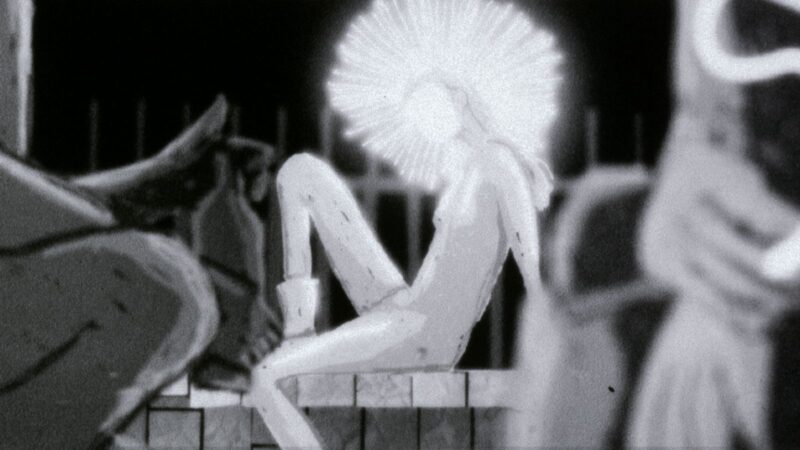
Via Dolorosa
Rachel Gutgarts on Via Dolorosa
What made you first want to be a director?
I was going to the cinematheque in Jerusalem a lot as a teenager and it inspired me and gave me a much needed escape from reality. The intimacy found in the cinema, in which secrets are revealed and vulnerability is celebrated, is a place I always want to go to.
Was there a film or director you were inspired by or continue to be inspired by?
There are several directors I was and still am inspired by, such as Agnès Varda, Julia Ducournau, Gaspar Noé, and Adam Curtis, and also several films, such as Ari Folman’s Waltz with Bashir or Persepolis by Marjane Satrapi, Avi Mograbi’s short film series named Details, and Kids by Larry Clark and written by Harmony Korine.
In your own words, tell us about your film. What should audiences know?
Through the Jewish tradition of asking forgiveness in the 10 days before Yom Kippur, the film goes back to my teenage years growing up in Jerusalem. I go back to the same places I used to go to as a teen and interview the teens I find there now. Through their interviews and personal memories, the film reconstructs a night of wandering the city’s streets, reflecting on what it means to grow up in a place such as Jerusalem. Using the forgiveness ceremony, the film tries to find a new way to repent, being personal and political at the same time, touching many layers of growing up in constant holy war.
What does it mean to you to show your film at New Directors/New Films?
I am deeply honored and excited to showcase Via Dolorosa in such an establishment as ND/NF with such a history of featuring many inspiring films and directors.
What was the biggest lesson you learned during the making of your film?
I practice staying true to my own artistic voice throughout the long process of filmmaking.
What is the best piece of advice you’ve ever been given?
A filmmaker should make the films he would like to watch.
What else do you enjoy doing outside of filmmaking?
I like making nutritious food for my friends and family and walking my dog with my partner.
What’s a film you saw recently that you enjoyed?
Recently there has been a screening of Wanda by Barbara Loden in my current school, Le Fresnoy, and I was very much inspired by it.

Nos Îles
Aliha Thalien on Nos Îles (Our Islands)
What made you first want to be a director?
As far back as I can remember, I wanted to be a writer and a camerawoman. A friend of my grandmother’s gave me an old VHS camcorder with which I filmed everything all the time. I never got to see the footage because VHS was already a bit out of date by then. When I was 10, I spent my time reading and writing, and I also loved drawing and photography. Since there was the pressure of having to choose a medium and stick with it for the rest of my life, cinema seemed to me to be the art that combined all my passions.
Was there a film or director you were inspired by or continue to be inspired by?
There are several: Maurice Pialat, Pedro Almodóvar, Souleymane Cissé, Cyril Collard, Steve McQueen, and Apitchapong Weerasethakul.
In your own words, tell us about your film. What should audiences know?
It’s a film about Martinique and insularity, following a group of friends. They talk about various things, such as the relationship with memory, daily life, and the eventual independence of the “formerly” colonized islands.
What does it mean to you to show your film at New Directors/New Films?
It’s incredible. Firstly, because it’s a festival of great renown, but also because it means something else to me to show it outside of the European continent. I hope my film can reach the New York audience.
What was the biggest lesson you learned during the making of your film?
That the traces of colonialism persist and that the question of representation is very important. But I’ve also learned, from the actors in my film, that there is hope.
What is the best piece of advice you’ve ever been given?
Not to say or show everything. And, to quote Édouard Glissant, to reclaim one’s right to opacity.
What else do you enjoy doing outside of filmmaking?
I’m also a visual artist and sculptor. Apart from that, I love cooking and dogs.
What’s a film you saw recently that you enjoyed?
Small Axe: Mangrove, by Steve McQueen.
Shorts Program I screens on April 6 & 7. New Directors/New Films takes place April 3–14. Explore the lineup and get tickets.


